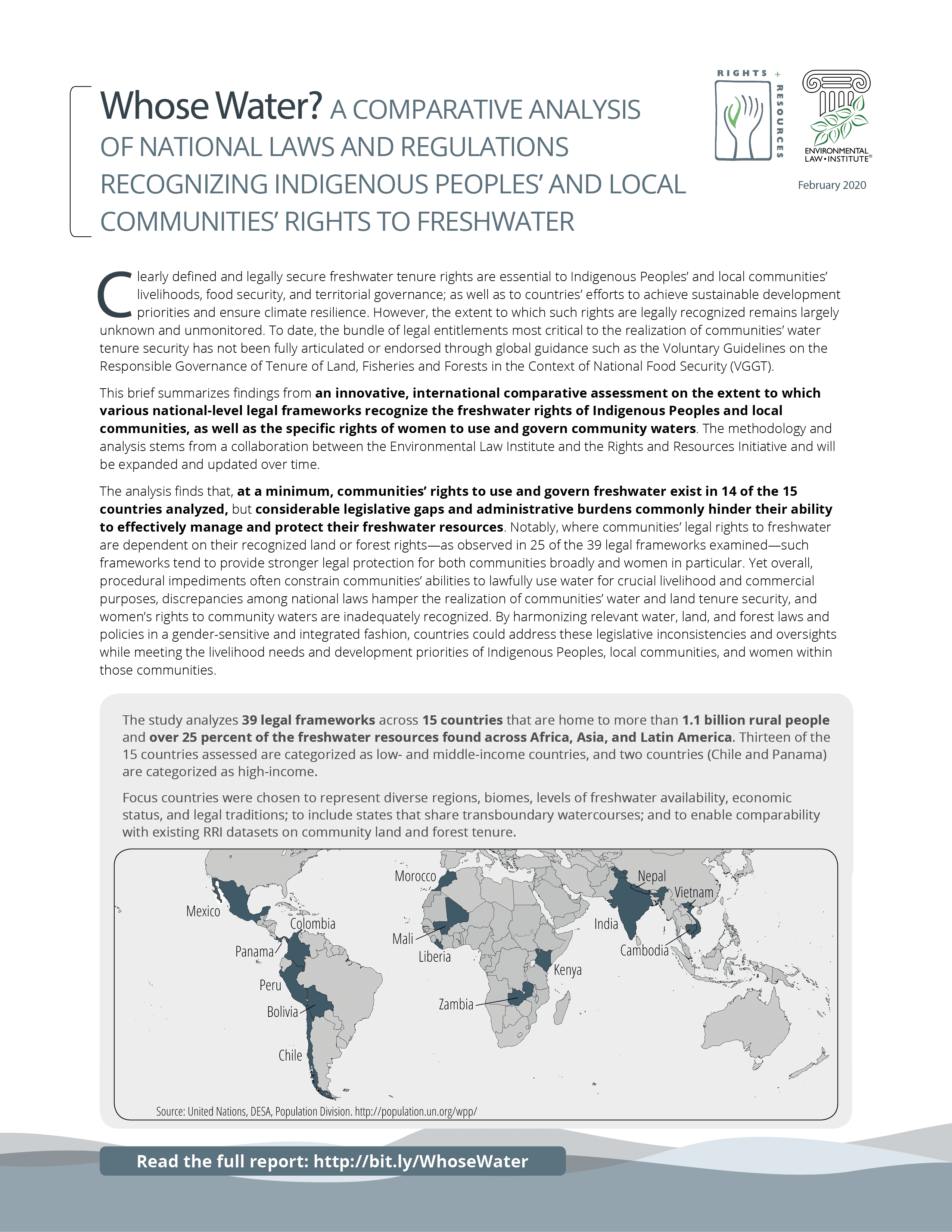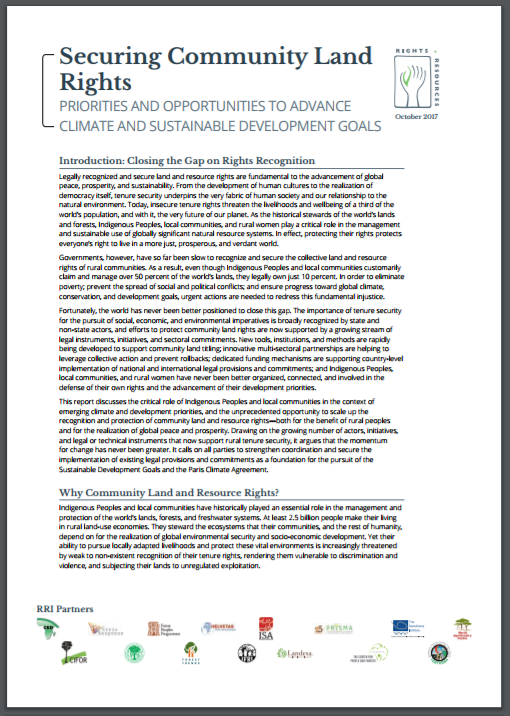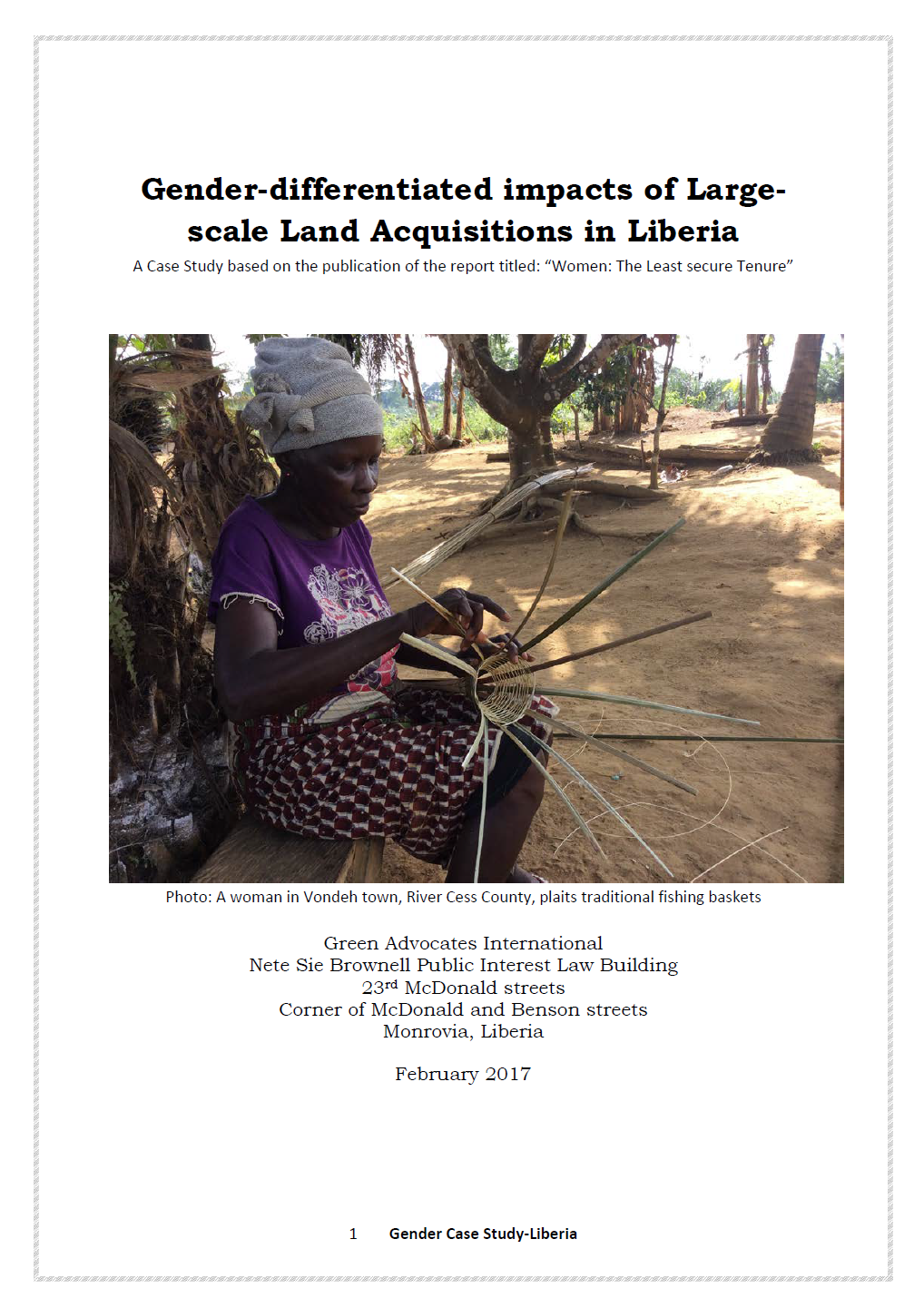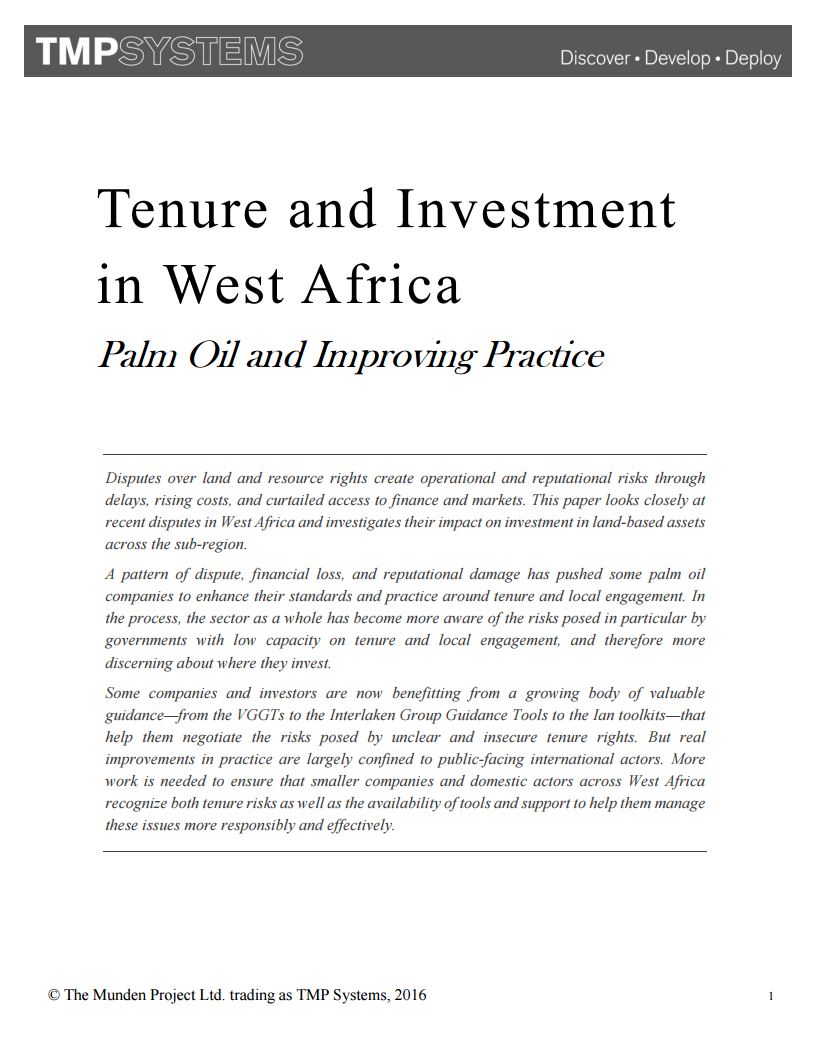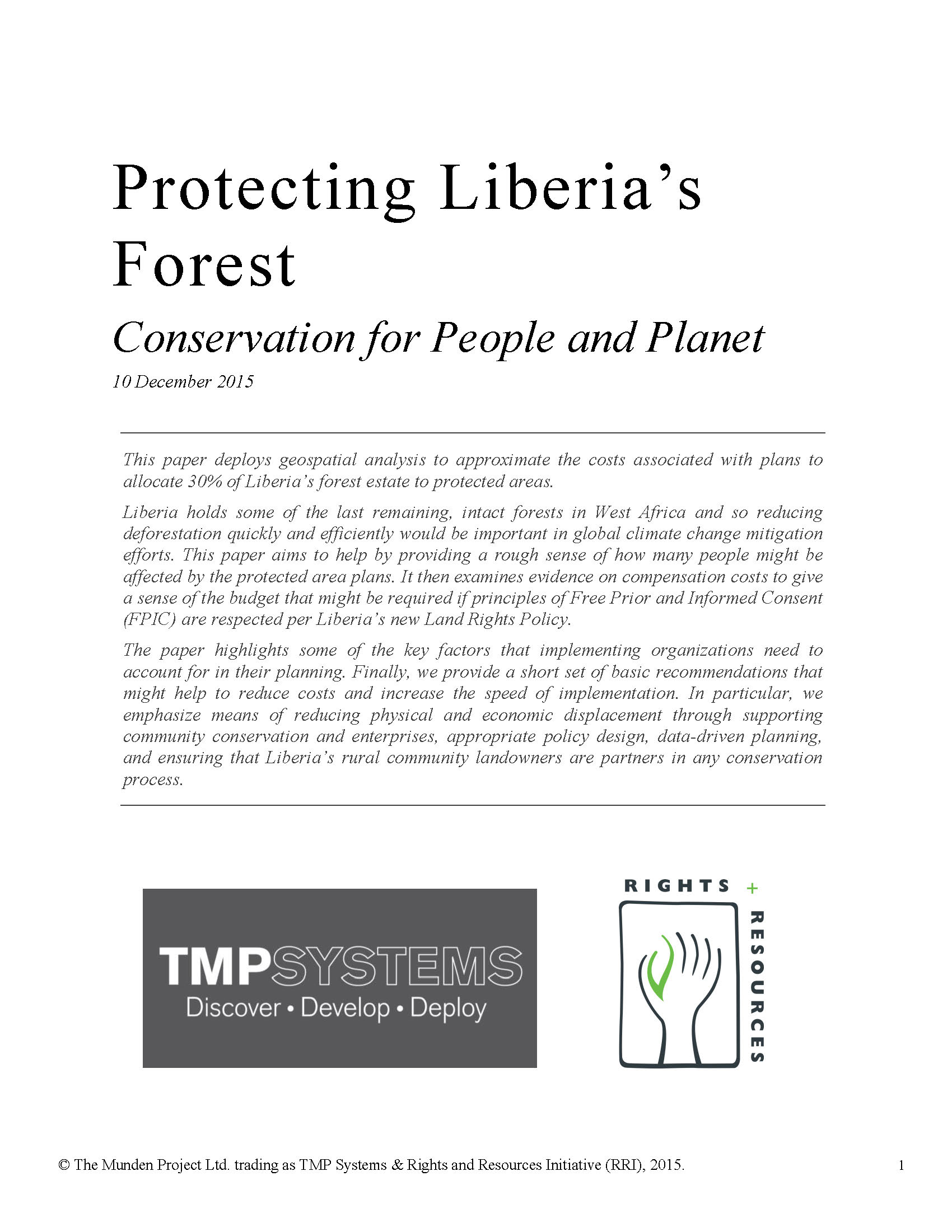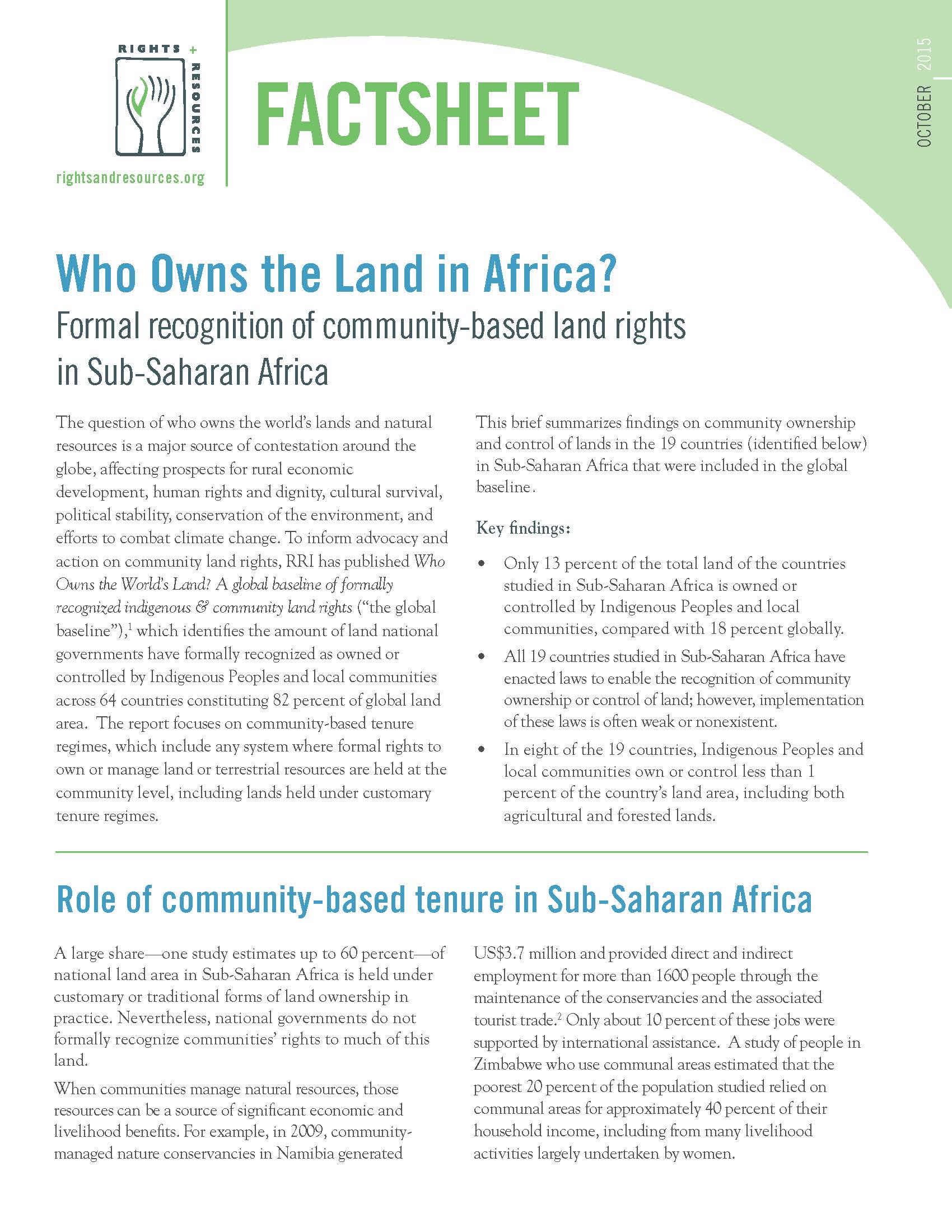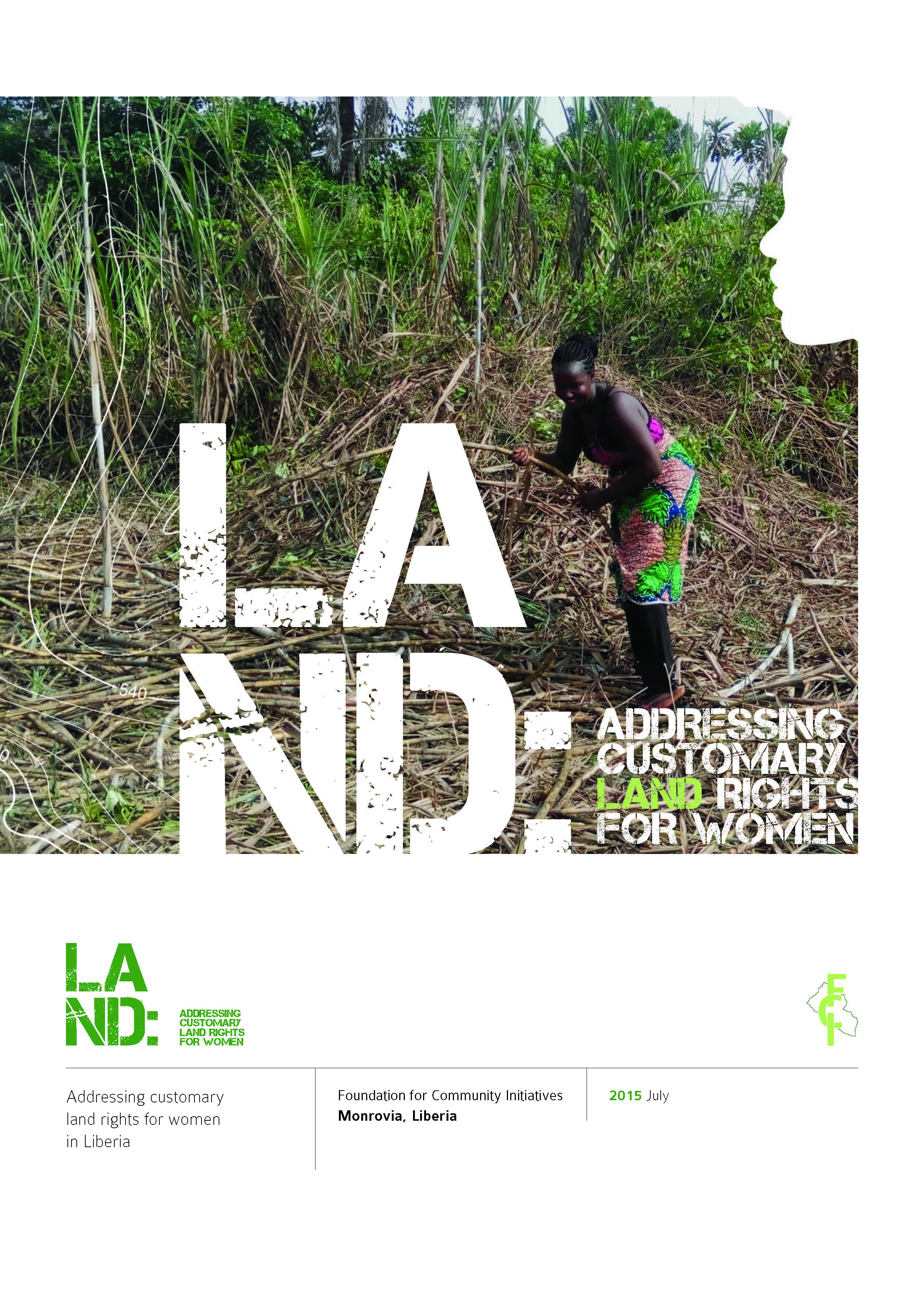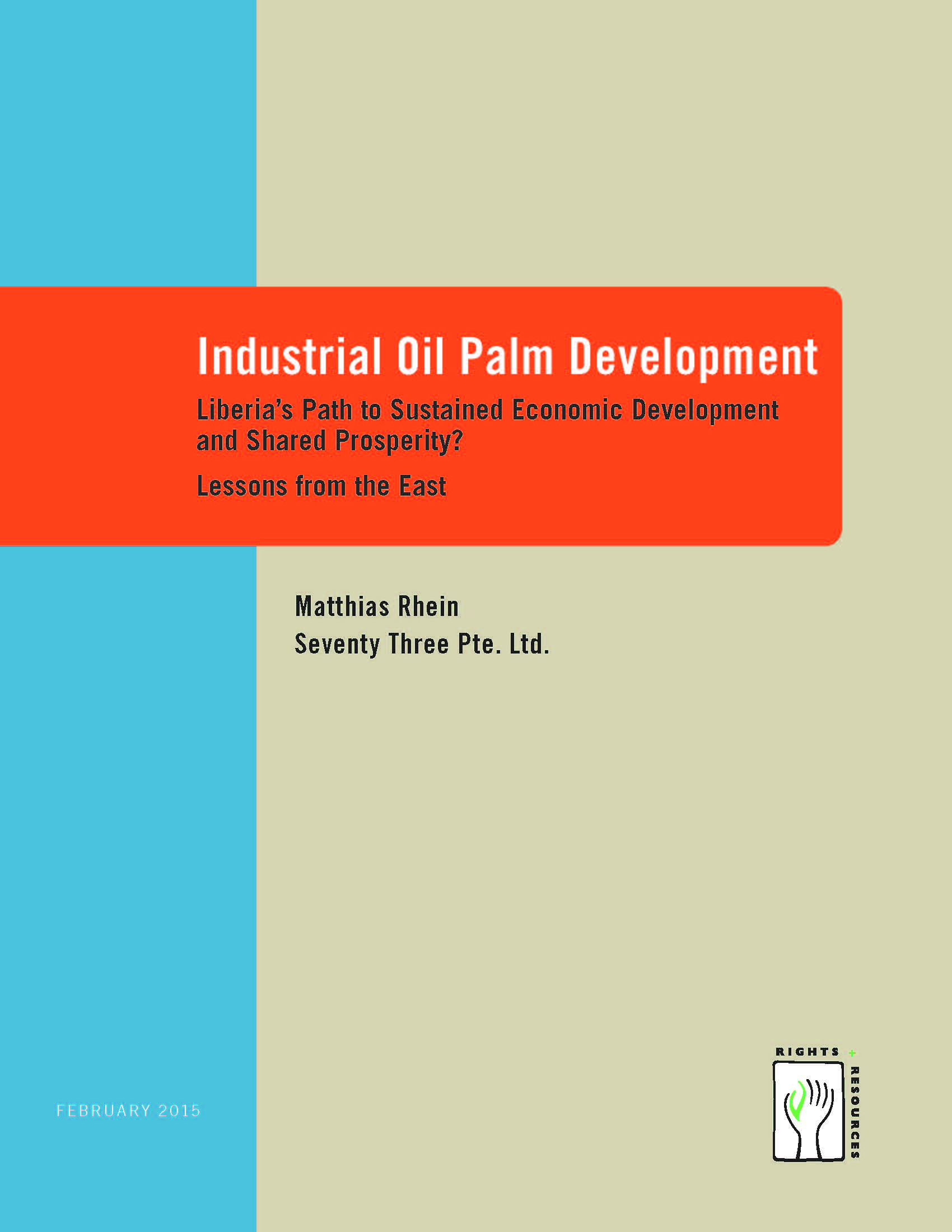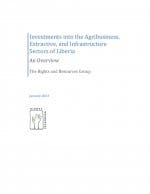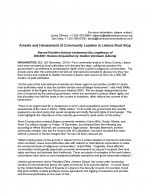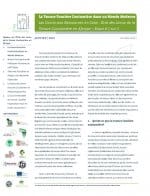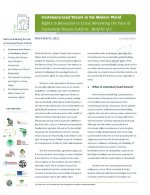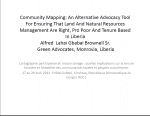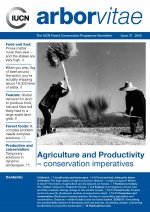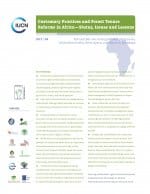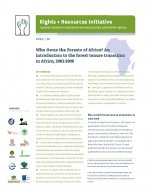This document shares emerging ideas, principles, and good practices to socialize the concept of community monitoring among companies and investors in land-based sectors, as well as outline steps they can take to meaningfully engage with Indigenous Peoples, local communities, and Afro-descendant Peoples to monitor and respond to the potential environmental and human rights impacts of their operations, supply chains, or investments.
This summary highlights findings of three RRI studies conducted in 2020 as they relate to Liberia, and explains what the findings of these three studies mean for Liberia and aims to equip local communities and civil society organizations (CSOs) with data to advance their advocacy work to influence future reforms, and help the government, donors, private sector actors, and conservationists make informed decisions.
This report presents an innovative, international comparative assessment on the extent to which various national-level legal frameworks recognize the freshwater tenure rights of Indigenous Peoples, Afro-descendants, and local communities, as well as the specific rights of women to use and govern community waters.
If properly leveraged, natural climate solutions can contribute over 37% of cost-effective CO2 mitigation by 2030. Evidence shows Indigenous Peoples and local communities are key to achieving such outcomes. This report presents the most comprehensive assessment to date of carbon storage in documented community lands worldwide.

At a Crossroads: Consequential Trends in Recognition of Community-Based Forest Tenure from 2002-2017
This analysis reports on trends in global forest tenure from 2002-2017. It is the fourth in a series of analyses monitoring the legal recognition of forest tenure around the world.
This report discusses the critical role of Indigenous Peoples and local communities in the context of emerging climate and development priorities, and the unprecedented opportunity to scale up the recognition and protection of community land and resource rights—both for the benefit of rural peoples and for the realization of global peace and prosperity.
A study found that the impact of large scale land acquisitions has caused women to lose their rights to use, access and own land for housing or farming, forest and forest products as well as other natural resources in their communities.
A synthesis of an investigation of tenure risk in East, West, and Southern Africa, that shows that a majority of tenure disputes are caused by the displacement of local peoples, indicating that companies and investors are not doing enough to understand competing claims to the land they acquire or lease.
Disputes over land and resource rights create operational and reputational risks through delays, rising costs, and curtailed access to finance and markets.
An empirical picture of the causes and effects of tenure-related disputes between private sector actors and local peoples across different sub-regions and countries in Africa, this analysis details statistical evidence of key trends in tenure-related disputes, including their causes as well as the prevalence of violence, work stoppages, and regulatory interventions.
Liberia holds some of the last remaining, intact forests in West Africa and so reducing deforestation quickly and efficiently would be important in global climate…
This brief summarizes findings on community ownership and control of lands in 19 countries in Sub-Saharan Africa.
Land is a key determinant of rural livelihoods, a central building block for effective economic growth, and a pivotal asset to the social and political stability of…
The purpose of this paper is to contribute to Liberia’s debate on economic policy, specifically, recent efforts around industrial-scale palm oil development against the context of…
This paper seeks to characterize and quantify the regional investment trends of organizations investing in Liberian agribusiness” infrastructure” and extractive industries” to better understand their…
Four community leaders in Sinoe County” Liberia have been arrested by local authorities over the past few days” calling into question the government’s commitment to…
L’objectif de cette série de cinq essais est d’informer et d’aider à structurer le plaidoyer et les actions contestant la faiblesse juridique des droits fonciers…
This five brief series, written by panelist Liz Alden Wily, analyzes the roots of African land tenure systems, recent policy trends and puts the phenomenon…
In response to February 3, 2012 press release by Sime Darby Berhard “False and Inaccurate Reports on Liberian Operations.”Washington, D.C. – In light of Sime…
This presentation provides an overview of the challenges facing Liberia as international interest in its land and resources intensifies” as well as of the promising…
Community Mapping: An Alternative Advocacy Tool For Ensuring That Land And Natural Resources Management Are Right” Pro Poor And Tenure Based In Liberia
Don Roberts” Andy White and Sten Nilsson set out the main factors responsible for the growing pressure on land” and forests in particular.
Lessons and findings regarding customary practices and Africa's forest tenure reform process
In recent decades there has been a shift away from government control of forest land towards increasing access and ownership for indigenous groups, communities, individuals,…

